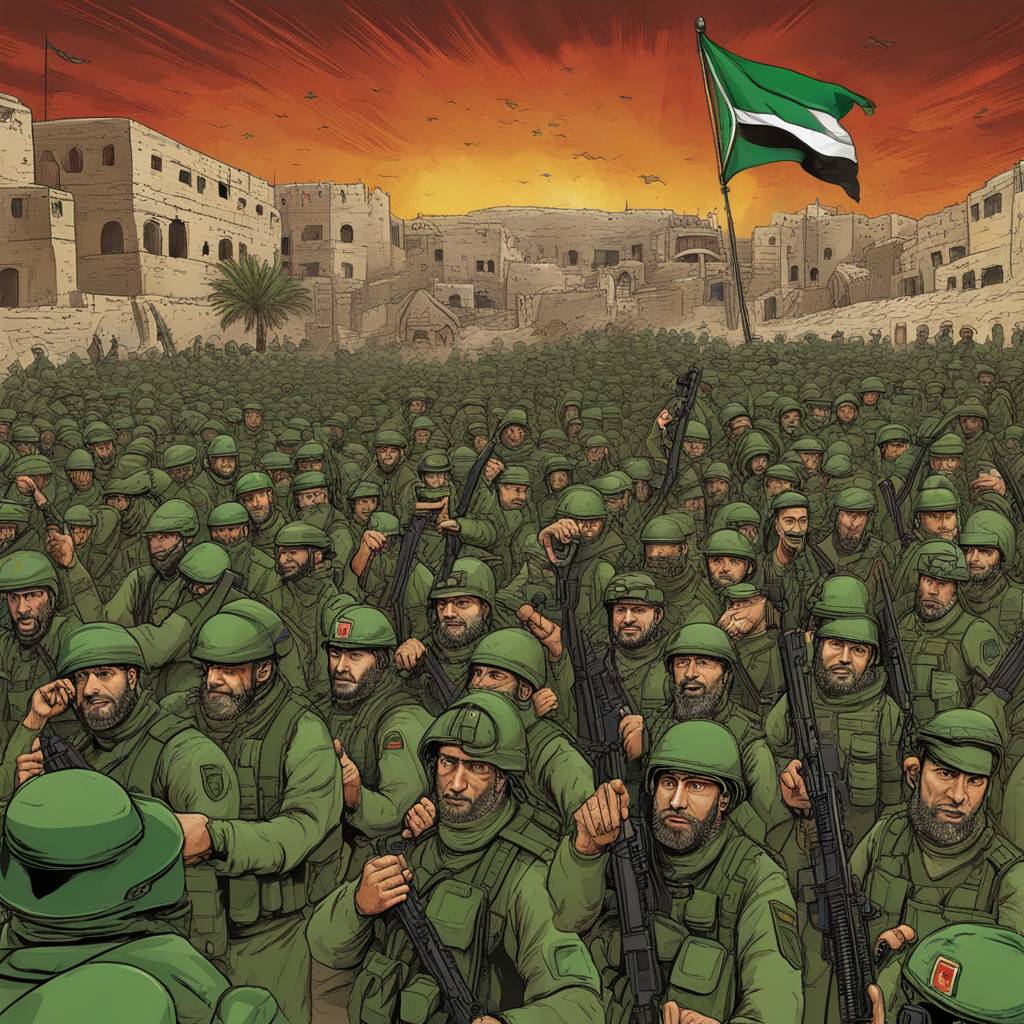Israeli Defense Minister Yoav Gallant provided an operational briefing stating that Hamas has ceased to function as a military organization in most parts of the Gaza Strip. He mentioned the progress made by Israel in dismantling Hamas, as well as the ongoing efforts to return hostages taken during a recent brutal attack that left 1,200 people dead. According to Gallant, Hamas commanders are hiding in tunnels, they have lost command and control capabilities, and battalion frameworks have ceased to function. Information from terrorist interrogations indicates that the organization is falling apart. Gallant also mentioned that Israel is fighting a war on multiple fronts, both offensively and defensively, and is making it clear that the price for acting against Israel will be heavy.
Gallant pointed out that what remains of the terrorist group is the Rafah Brigade, with four battalions, which will also be dealt with soon. He stated that their intelligence resources have been severely diminished. Israel has been operating everywhere on a daily basis in order to prevent enemies from gaining strength and to deter anyone in the Middle East from acting against Israel. These remarks came after an airstrike on Iran’s Consulate in Damascus that killed 12 people, including two Iranian generals and a member of Hezbollah. While Israel has targeted Iranian officers in Syria and Lebanon, they did not confirm Monday’s attack. Additionally, an Israeli airstrike reportedly killed seven World Central Kitchen workers in Gaza, prompting humanitarian organizations to assess the safety of providing aid in the region.
Nearly six months into the conflict, Israel’s offensive in Gaza has resulted in the deaths of nearly 33,000 Palestinians, according to figures from the Hamas-run Health Ministry. However, Israel has disputed these figures, with the Ministry not distinguishing between civilians and combatants killed. The Health Ministry claims that about two-thirds of the dead are women and children. The ongoing violence has raised concerns about the humanitarian situation in Gaza, with organizations like World Central Kitchen needing to assess the safety of their workers providing aid in the region. The conflict has escalated with airstrikes and casualties on both sides, further complicating efforts to reach a resolution.
The situation in Gaza highlights the ongoing tensions and violence in the region, with Israel and Hamas engaged in a deadly conflict. Gallant’s briefing shed light on the progress made by Israel in dismantling Hamas and dealing with remaining factions within the organization. The heavy toll of casualties on both sides underscores the humanitarian crisis unfolding in Gaza, with civilians bearing the brunt of the violence. The international community has called for a ceasefire and peaceful resolution to the conflict, but the situation remains volatile. Efforts to return hostages and prevent further casualties continue, as Israel and Hamas remain locked in a deadly battle for control of the Gaza Strip.
The conflict in Gaza has broader implications for regional stability, with Israel facing threats from multiple fronts and engaging in offensive and defensive operations to protect its interests. The targeting of Iranian officers in Syria and Lebanon, as well as recent airstrikes on World Central Kitchen workers in Gaza, highlight the complex nature of the conflict. The high number of casualties and ongoing violence raise concerns about the impact on civilians and the need for humanitarian assistance. As the situation continues to evolve, the international community faces the challenge of finding a peaceful resolution to the conflict and addressing the underlying grievances of both sides. The path to lasting peace in the region remains uncertain, as Israel and Hamas remain entrenched in a protracted and deadly struggle for control.


